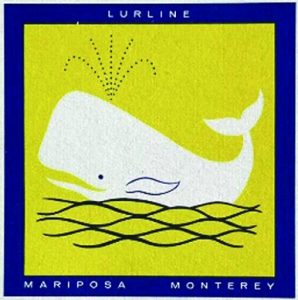
Fleet Adjustments Reducing Risk of Whale Collisions
Fleet Adjustments Reducing Risk of Whale Collisions

Matson’s improved performance resulted from a series of researched and then implemented adjustments. The most drastic change was moving the departure of the Oakland mid-week sailing earlier to 6:00 p.m. Wednesday. This allowed the Oakland-Long Beach vessels additional time on the transit southbound to participate in the VSRs. As these two vessels traditionally account for the majority of the VSR miles accrued, this was an enormous success.
Sixty days before the schedule change, the Sales teams went to the customers to work with them on finding solutions to ensure smooth service. Customers were “glad Matson was taking the initiative of protecting the marine life.” They wanted to be part of the solution and worked with their upstream suppliers to get their products in earlier to meet the new sailing cutoffs. By the time the earlier sailing went into effect, customers continued moving their freight with the level of service they were accustomed to for a seamless transition.
There were also numerous minor adjustments to the fleet schedules, invisible to our customers, but helped our participation in the voluntary slowdown zones. These minute changes added up over the season to be a big part of the success we had in 2023.
A huge thank you goes out to our vessels that developed a new route that had minimal impact on the schedule, required the least time operating at 10 knots or less, and accrued the fewest miles in the whale zones. Through various iterations and collaboration between multiple vessels, Fleet Ops, Marine Ops, and the crew created routes that decreased our annual VSR mileage by 44% or 13,648 nautical miles (nm) from 2022 to 2023.
A major contributor to this was entering and exiting Long Beach via the Southern Traffic Separation Scheme (TSS). This cut down the distance traveled in the VSRs roughly in half while only adding approximately one hour to transits.
This project was primarily managed by Fleet Operations day to day, but it was also a collaborative team effort on multiple fronts. Sales played a monumental part in easing any customer concerns. Konner Edmiston, our China and Alaska Fleet Operations Manager, played a big role in the CLX+ vessels’ increased participation and the Alaska vessels’ participation in the Pacific Northwest’s VSRs. The U.S. West Coast and Honolulu terminals played their part in the solution by getting the ships discharged and freight available to customers with less overall time in port. Equipment Control was another key player that helped adjust the consistent flow back to the West Coast while still ensuring the right type of equipment was available in the right location for customers.
Fleet Operations extends a heartfelt mahalo to everyone who helped make this ongoing project a great success, and look forward to working with everyone again in 2024 on this important initiative.
